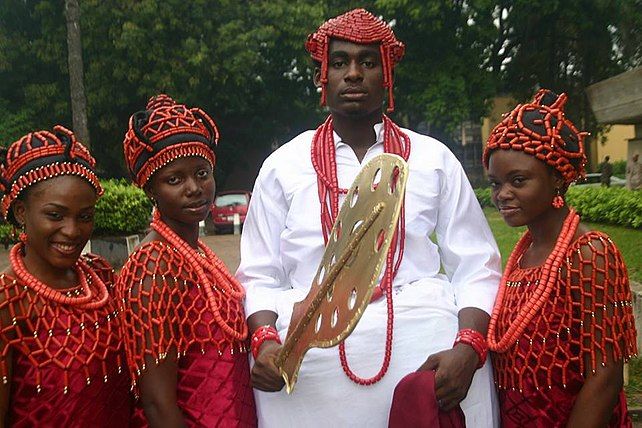
Introduction
As a proud Nigerian and an Edo man, I am blessed to be part of a vibrant culture steeped in history, tradition, and art. Nigeria, with its diverse ethnic groups, offers a unique tapestry of cultural experiences. Among these, the Edo culture stands out for its rich history, artistic achievements, and deeply rooted traditions. In this blog, I invite you to journey with me through the captivating world of Edo heritage.
The Historical Grandeur of the Edo Kingdom
The Edo people, primarily found in the southern region of Nigeria, are the descendants of the Benin Kingdom, one of the oldest and most advanced civilizations in pre-colonial Africa. The kingdom, established around the 11th century, is renowned for its sophisticated political structure, architectural marvels, and impressive art forms.
Art and Craftsmanship: The Legacy of Benin Bronzes
One cannot discuss Edo heritage without mentioning the iconic Benin Bronzes. These exquisite pieces of art, crafted from brass and bronze, depict various aspects of Edo life, from royal figures to mythical creatures. The Benin Bronzes are celebrated worldwide for their intricate designs and historical significance, reflecting the advanced metallurgical skills of the Edo people.
Language and Literature: The Eloquent Edo Dialect
The Edo language, also known as Bini, is a melodious and expressive dialect. It is not only a means of communication but also a vessel for transmitting folklore, proverbs, and oral traditions. The language beautifully encapsulates the wisdom and values of the Edo people, making it an essential part of their cultural identity.
Festivals and Traditions: Celebrating Life the Edo Way
Edo festivals are vibrant displays of culture, filled with music, dance, et cetera. The Igue Festival, one of the most significant, is a time of thanksgiving and renewal, where the Oba (king) performs sacred rites to ensure the prosperity of the land. These festivals are not only a celebration of life but also a means of preserving the rich traditions passed down through generations.
Cuisine: A Culinary Journey Through Edo Flavors
Edo cuisine is a delightful exploration of flavors, characterized by dishes like pepper soup, banga soup, and pounded yam. These meals are not just about sustenance but are also an integral part of social gatherings and family life. The use of local ingredients and traditional cooking methods showcases the ingenuity and culinary heritage of the Edo people.
The Role of the Oba: A Symbol of Unity and Tradition
The Oba of Benin holds a revered position in Edo culture, symbolizing the unity and continuity of the Edo people. The monarchy, with its deep-rooted customs and protocols, plays a crucial role in maintaining the cultural and spiritual fabric of the society. The Oba’s palace, a UNESCO World Heritage site, stands as a testament to the historical and cultural significance of the Edo monarchy.
Conclusion
Being an Edo man is a source of immense pride and joy. Our rich heritage, from the legendary Benin Bronzes to the vibrant festivals, forms an integral part of our identity. As we navigate the modern world, it is essential to preserve and celebrate our cultural roots, ensuring that future generations can experience the beauty and wisdom of Edo culture. Join me in embracing and honoring the legacy of our ancestors, as we continue to weave the rich tapestry of Edo heritage.
Call to Action
I invite you to explore more about the Edo culture, visit the historical sites, and participate in our festivals. Let us celebrate the diversity that makes Nigeria a unique and beautiful nation. Share your thoughts, experiences, and stories about your cultural heritage in the comments. Together, we can keep our traditions alive and thriving.
